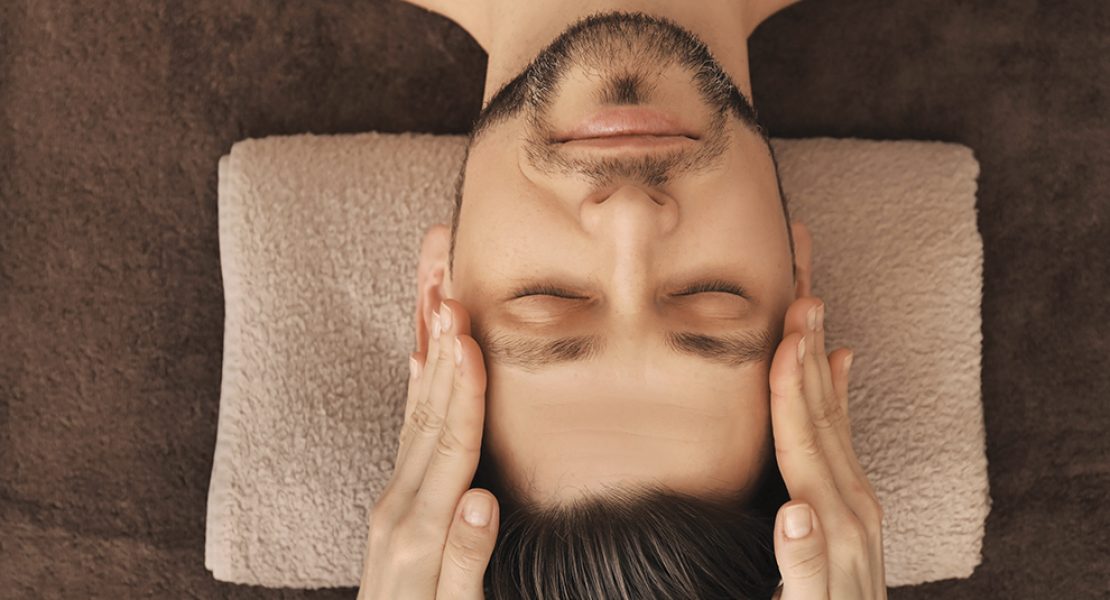Benefits of Massage

Before you read this article, pause and think about something. Are you leaning forward, hunched over, head down, shoulders scrunched up? Are you feeling a little tense, and noticing yourself in this position more often than you’d like to admit? If so, you may be squarely in need of a massage!
“The #1 complaint I hear is neck and shoulder pain or pain between the shoulder blades,” says Sam Reichgott, LMT, owner of Rockin’ Good Health & Therapeutic Massage in Bethlehem. “I think this is because of our hands-and-head-forward lifestyle: cellphones, driving, desk work. I also see a lot of people with low back pain. For each of these conditions, I often see the same pattern of muscle tightness and weakness among many clients with the same complaint. So, I usually know where to start, to provide some pain relief. Certainly, there are many who get a massage for the relaxation. To make it easy to understand, I describe my massage options as Relaxing, Invigorating, and Therapeutic, but I really think of ALL of it as therapeutic; people’s nervous systems need a break, just as much as their muscles, if not more.”
Reichgott has practiced as a massage therapist for more than four years and also offers manual lymph drainage as well as Lypossage®, a slimming massage treatment that eliminates excess body fluid. He’s seen many benefits of massage, both for himself and his clients.
In the immediate term, massage proves very relaxing and calming, and it may even lower blood pressure according to some studies. Reichgott explains that short-term benefits of massage may include reduced muscle tension, reduced muscle pain, and increased range of motion, particularly in achy joints. He adds that regular, focused massage sessions may result in longer-lasting benefits, such as relief from chronic muscle pain.
“Repeated, short-term stress reduction also has long term benefits,” Reichgott says. “Massage can reduce cortisol levels and increase levels of neurotransmitters like serotonin and dopamine. Receiving massage on a regular basis can have a long-term, positive effect on mood and appetite, and can help improve sleep.”
“With regular massage, the benefits of calming the nervous system can actually affect weight, as a result of reducing cortisol levels,” he adds. “So, the long-term benefits go well beyond just relaxation and pain reduction.”
Reichgott explains that massage treatments are available in a wide range of modalities, and therapists each have their own touch and style. He encourages anyone trying massage to be open-minded and to embrace the opportunity to communicate with your therapist.
“If you try massage and you’re not impressed, don’t give up too soon,” he says. “Think about what you liked and did not like about the massage, and communicate that with your therapist, or with a new therapist. If their goal, like mine, is to understand and address the client’s needs, then communication is key. If you’re new to massage, you might not know how to communicate your needs, and you’ll have to rely on the therapist’s training and intuition. After a few sessions, though, you’ll start to understand how a good massage feels, and you’ll be better able to describe it. But if your goal is relaxation, and you fall asleep and miss the massage, that’s great!”
For More Information:
Rockin Good Health
559 Main St. Suite 007 | Bethlehem
484.802.7365 | rockingoodhealth.com
Relaxation Tips to Try at Home
Stretching, breathing, and relaxation at home complement the healing powers of massage therapy. Depending on the condition of your body, any injuries, or other medical conditions, you may find you need specific stretches or therapies. However, just about everyone can benefit from these relaxation techniques from Sam Reichgott, LMT, especially if you spend a lot of time at a desk:
“Move back, away from the desk, so your arms are free to fall on your lap,” he says. “Take a moment to feel how you feel. Are your hands in fists? Open them. Are your shoulders up around your ears? Drop them. Is your tongue pressed against the roof of your mouth? Let it fall. Take a deep breath. Try to breathe into your belly, using your diaphragm, rather than breathing shallowly only into the top of your chest. These simple steps, opening your hands, dropping your shoulders, releasing your tongue, breathing into your belly, can really help instill a sense of calm, and it only takes about 30 seconds. You can definitely do this once an hour, even at work, and you’ll be amazed at the positive effect on your mood and attitude.”
“For the typical neck and shoulders pain, I find most clients’ issues start with a tight chest, shoulders rolled forward, head pulled down,” he says. “Try raising your head and catch some sky (or ceiling) for a minute. When nobody’s watching, strike the Superman/Wonder Woman pose, hands on hips, shoulders back, chest out, chin up. Not only will you feel more powerful, but you’ll also be stretching your pectoralis muscles and closing the space between your shoulder blades, and that really feels good.
“I find that a lot of issues can be helped by pretending to be a superhero. :-) Every day, I don my superhero uniform (scrubs), and work to save the world, one client at a time.”


















